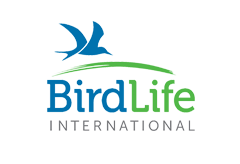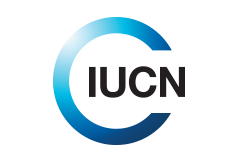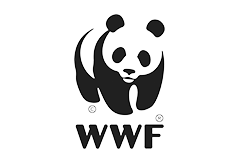Publications
CIHR Joint Documents
Statement of members of the Conservation Initiative on Human Rights for inclusion in the UNEP report on Conservation and Human Rights
2 OCT 2024 - * This statement is from a subset of CIHR members.
Established in 2009, the Conservation Initiative on Human Rights (CIHR) is a consortium of international conservation nongovernmental organizations (NGOs) that seek to improve conservation worldwide by promoting the integration of human rights in conservation policy and practice. Our shared conviction is that, in doing so we can achieve positive, lasting outcomes for people and for the nature that sustains us all.
Towards that end, we have all made advancements and commitments as institutions to not only respect human rights, but to support and promote human rights in our conservation policies, programs and practices. Each organization has built its knowledge, systems, and processes to realize those commitments. At the same time, we recognize that we must continuously learn, adapt, and improve how we work. We are therefore committed to ongoing dialogue and learning.
The Core Human Rights Principles for Private Conservation Organizations and Funders (the Principles) are a welcome development to be read in conjunction with legal requirements and our respective institutional policies on human rights and safeguards. These voluntary principles can also play a complementary role to existing international standards for governments to respect, protect, and fulfill human rights obligations in conservation.
Equally important to the Principles is the dialogue and consultation process that they are built upon. An ongoing dialogue that contributes to, and learns from, conservation practice remains essential. We will continue to engage in these discussions to foster relationships that will strengthen conservation and human rights collectively.
BirdLife International, Conservation International, Fauna & Flora, The Nature Conservancy, Wildlife Conservation Society, Worldwide Fund for Nature International
Core Human Rights Principles for Private Conservation Organizations and Funders
UNEP 2024
This UNEP document calls for every private organization and funder that engages directly in conservation activities or that provides financial or other support for such activities to respect internationally recognized human rights. At a minimum, these groups should comply with the ten updated human rights principles described in the report.
Human Rights in Conservation: Progress Since Durban (PDF)
This white paper describes the progress on integrating human rights into conservation since the 2003 IUCN World Parks Congress in Durban, South Africa.
Rights-based Approaches to REDD+ (PDF)
This paper contains case studies from the CIHR members on rights-based approaches to REDD+.
Conservation and Human Rights: Key Issues and Contexts (PDF)
This scoping paper was drafted in 2011 in order to guide the CIHR program of work.
Free, Prior and Informed Consent (FPIC) and Tenure rights
Free, prior and informed consent (PDF)
A briefing paper on FPIC including lessons learnt from FFI’s experience.
Guidelines for Applying Free, Prior and Informed Consent (PDF)
These guidelines were drafted for use by CI staff, but may be helpful to any organization that works with indigenous peoples. Also available in Español and Português.
Tenure and resource use rights (PDF)
An FFI briefing paper on resource use and management rights including lessons learnt from practice.
Opportunity cost analysis (PDF)
An FFI briefing paper that examines the pros and cons of using OCA as part of the FPIC process.
Gender
Gender and conservation: key questions (PDF)
A set of key questions from FFI to help project managers think through relevant gender issues when developing a new project or seeking to make an existing project more gender sensitive.
Gender (PDF)
An FFI briefing paper on Gender in Conservation including lessons learnt from FFI’s experience.
Guidelines for Integrating Gender into Conservation Programming (PDF)
A set of guidelines for CI staff to integrate gender into their work. Also available in Español, Português and Français.
A gender perspective on securing livelihoods and nutrition in fish-dependent coastal communities (PDF)
A WCS paper that assesses the opportunities for improving the livelihoods of people involved in small-scale fisheries and marine conservation by focusing on the impacts of gender dynamics.
Gender and Inclusive Conservation (PDF)
This innovative tool for gender auditing was developed by WWF Nepal, recognizing that conservation and sustainable development strategies must consider gender responsive and inclusive planning, budgeting and auditing in all stages of the program cycle.
Human Rights
An Introduction to Conservation and Human Rights for BirdLife Partners (PDF)
Provides an overview of some of the human rights relevant to a conservation context. Also available in Español.
Rights-based Approaches: exploring issues and opportunities for conservation
A joint CIFOR and IUCN paper exploring the relationships between conserving biodiversity and upholding human rights.
Indigenous peoples
Natural Alliances between Conservationists and Indigenous Peoples (PDF)
A WCS Working Paper offering a case study from Bolivia.
Communities and Conservation: 50 Inspiring Stories from WWF Indonesia.
This collection celebrates the experiences of WWF-Indonesia staff working alongside local communities, and illustrates the transformation of conservation to be more people-centered, equitable and respectful of human rights, for more significant impact.
Program Management, Monitoring and Evaluation
Social impact assessment (PDF)
An FFI briefing paper on SIA including lessons learnt from FFI’s experience.
INTRINSIC: Integrating Rights and Social Issues in Conservation
A flexible package of training materials designed to improve the capacity of conservation practitioners to address rights and social issues in their work. Comprises a trainers guide with accompanying slide presentations designed to be customized for use in a wide range of different contexts.
Grievance mechanisms (PDF)
An FFI briefing paper on development of locally relevant grievance mechanisms for conservation projects.
Guiding principles for evaluating the impacts of conservation interventions on human well-being (PDF)
A paper that presents nine guiding principles based around a well-being framework incorporating material, relational and subjective components, and focused on gaining knowledge needed for decision-making.
Equitable benefit sharing (PDF)
An FFI briefing paper on issues and lessons learnt in design of equitable benefit sharing mechanisms in conservation.
Prism- A toolkit for evaluating the outcomes and impacts of small/medium-sized conservation projects
Conservation actions can have complex and socially-differentiated impacts on people, and it is therefore often necessary to incorporate questions relating to social impacts into project monitoring and evaluation. More information and methods for evaluating social impacts can be found in the Livelihoods & Governance module of the PRISM Toolkit.
GRACE – Guidance for the Rapid Assessment of Cultural
Ecosystem Services (PDF)
FFI guidance to help decision makers to recognize and understand cultural ecosystem services and benefits and to take these into account in making decisions on how nature is used and managed.
Guidance on Displacement and Restrictions on Access to Resources (PDF)
FFI’s position on displacement, which offers guidance on managing relocation and compensation processes, based on internationally recognized good practice.
protected areas
and people
Protected areas and poverty (PDF)
An article reviewing the origins of the debate on the relationship between protected areas and poverty.
Protected areas and human displacement: a conservation perspective (PDF)
A WCS Working Paper.
Protected areas and human livelihoods (PDF)
WCS case studies examining the complexity of conservation implementation in the context of protected areas and livelihoods.
Sustainable Livelihoods
FFI’s position and approach (PDF)
This 1 page document briefly summarizes FFI’s approach to its work on sustainable livelihoods and natural resource governance.
Why not alternative livelihoods? (PDF)
This briefing paper explains why FFI emphasizes a ‘sustainable’ rather than ‘alternative’ livelihoods approach.
Sustainable livelihoods (PDF)
An FFI briefing paper on supporting economically, socially and environmentally sustainable livelihoods.
📷 Photo credits: China - Conservation International by Russell A. Mittermeier








